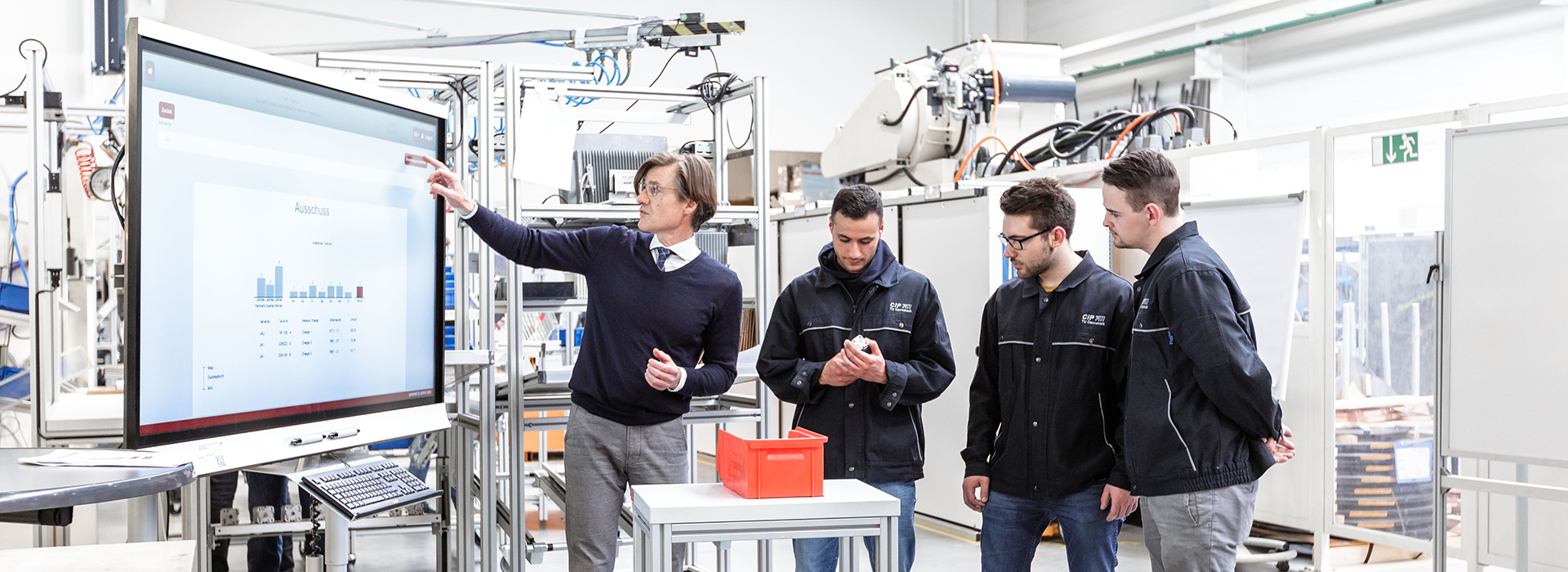

In: 16th International Conference on Informatics in Control Automatic and Robotics, pp. Klein, P., Bergmann, R.: Generation of complex data for AI-based predictive maintenance research with a physical factory model. Janiesch, C., et al.: The internet-of-things meets business process management: a manifesto. Ĭhang, C., Srirama, S.N., Buyya, R.: Mobile cloud business process management system for the internet of things: a survey. īroy, M., Cengarle, M.V., Geisberger, E.: Cyber-physical systems: imminent challenges. īoschert, S., Rosen, R.: Digital twin-the simulation aspect.
#BOCHUM LEARNING FACTORY SOFTWARE#
(eds.) Synergies Between Knowledge Engineering and Software Engineering. (2019)īergmann, R., Müller, G.: Similarity-based retrieval and automatic adaptation of semantic workflows. In: Workshop Proceedings of ICCBR 2019, vol. (2015)īergmann, R., Grumbach, L., Malburg, L., Zeyen, C.: ProCAKE: a process-oriented case-based reasoning framework. In: Proceedings of the Demo Session at 13th International Conference on BPM, vol. 66(2), 803–826 (2017)īaumgrass, A., et al.: GET controller and UNICORN: event-driven process execution and monitoring in logistics. KeywordsĪbele, E., et al.: Learning factories for future oriented research and education in manufacturing. We introduce our physical Fischertechnik factory models simulating a complex production line and three exemplary use cases of combining BPM and IoT, namely the implementation of a BPM abstraction stack on top of a learning factory, the experience-based adaptation and optimization of manufacturing processes, and the stream processing-based conformance checking of IoT-enabled processes. In this work, we propose to use learning factories for conducting research in the context of Business Process Management (BPM) and Internet of Things (IoT) as this combination promises to be mutually beneficial for both research areas. Learning Factories as small scale physical models of real shop floors are realistic platforms to conduct research in the smart manufacturing area without depending on expensive real world production lines or completely simulated data. The laboratory belongs to MANULAB, a national infrastructure for basic research on manufacturing engineering.The production and manufacturing industries are currently transitioning towards more autonomous and intelligent production lines within the Fourth Industrial Revolution (Industry 4.0). Users must have completed an HSE e-learning course, and received training before use.

See Festo Didactic for specific information on our Cyber-Physical Learning Factory. We use this equipment in several of our courses at master and bachelor level. We use this equipment for research on Industry 4.0 as a system, and the interaction between operators, software and machines. It is also adapted for AR (augmented reality) and VR (virtual reality). There are a large number of built-in sensors and associated software for simulation, planning, analysis, and data capture (ERP, MES, robotic programming, PLC programming and material flow analysis).
#BOCHUM LEARNING FACTORY SIMULATOR#
The factory is a full-scale simulator of a real industrial production with conveyor belts, robots, machining, autonomous transport units and automatic bearings. The Learning Factory is used for education and research in Industry 4.0. More information about opening hours will come. The laboratories are available by appointment. The laboratories can be used by students at the bachelor, master and PhD level, in addition to researchers, for both teaching, study projects and research. MANULAB is open for all researchers including industry, although the latter is limited by the ESA regulations.


 0 kommentar(er)
0 kommentar(er)
